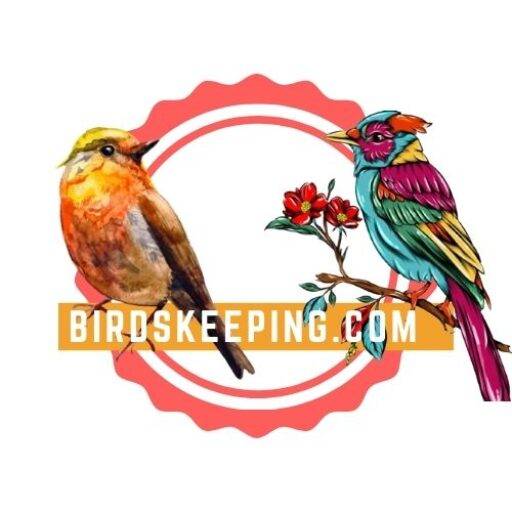A cockatiel’s diet consists of various foods, including seeds, fruits, vegetables, insects, and many more, which add value to the health of cockatiels. Many people have asked queries about the topic: Can cockatiels eat celery? Can you feed them celery?
The straightforward answer to the above question is yes, and cockatiels can eat celery whenever they get a chance to eat. The nutrients present in celery are beneficial for the growth of cockatiels.
Table of Contents:
- Is Celery Safe For Cockatiels?
- Do Cockatiels Like Celery?
- Nutrition In Celery For Cockatiels
- How To Feed Celery To Cockatiels?
- How Often & How Much To Feed Cockatiels Celery?
- Can Cockatiels Eat Celery Leaves?
- Can Baby Cockatiels Eat Celery?
- Conclusion
Is Celery Safe For Cockatiels?
Yes, Celery is safe for most birds, including cockatiels. Celery is safe for cockatiels because it has high water content and is unlikely to cause any problems in your bird’s diet.

The key to making sure that it is safe for your cockatiels is to ensure that the Celery you feed them does not contain any harmful chemicals such as pesticides or herbicides.
You can boil the Celery for 10 minutes before feeding it to your cockatiels or use frozen vegetables like peas and corn because they are not exposed to chemicals during growth.
Can Cockatiels Eat Grapes?
Do Cockatiels Like Celery?
Yes, cockatiels do like Celery. These birds like to eat Celery because it is crunchy and can be fun to eat.
Some people have reported that their cockatiels prefer to eat only the outer leaves and refuse to eat the heavier inner leaves.
On the other hand, some people have found that their cockatiels enjoy it when they chop up the whole plant and put it into their cage.
One thing is for sure: since this is a natural product and not a food specifically manufactured for birds, each individual has a different opinion on how they prefer it.
Nutrition In Celery For Cockatiels
Celery is an all-natural, low-calorie vegetable. It has lots of vitamins and minerals beneficial to your pet bird’s health, including vitamins A, B6, folate, vitamins C, potassium, calcium, and magnesium.
It also contains potassium sorbate, which helps prevent spoilage by killing other harmful bacteria or mold spores on the fresh foods you shop for your bird.
Celery is also a good source of fiber, reducing blood cholesterol levels in your bird by up to 26 percent.
Celery can augment your cockatiel’s diet if used in small amounts as a healthy, tasty snack. It carries many nutrients that are essential for your pet bird’s well-being. Here are some of them discussed below.
- Vitamin A
It boosts the immune system, which could help your bird boost its immunity against various diseases. It also helps produce healthy skin and feathers.
You can feed Celery to your cockatiel raw once a day or every other day to meet its minimum daily dietary requirement for vitamin A.
The amount needed per feeding should not exceed 10 percent of the bird’s total vitamin A requirement for the day.
- Vitamin B6
It promotes healthy tissue growth, helps with the production of red blood cells, aids in the absorption of protein, and can help promote a healthy nervous system.
You can feed cockatiel celery twice a day to meet its minimum daily dietary requirement for vitamin B6, which is 3.25 mg per kg of body weight.
Be sure to wash your hands before preparing this food, and always wash your hands after handling any food that your pet bird may have to consume.
Can Cockatiels Eat Almonds
- Folate
This vitamin is key in the creation and regulation of hemoglobin. It works together with other vitamins in a very important way to keep the heart strong, healthy blood cells safe, and healthy bones strong.
It would be best to feed your bird celery once a day to meet its minimum daily dietary requirement for folate, and the amount needed per feeding should not exceed 10 percent of the bird’s total folate requirement for the day.
- Potassium
This mineral is an electrolyte in the body. Potassium has important functions in nerve transmission, muscle contraction, heartbeat, and blood pressure.
You can feed your bird celery once a day to meet its minimum dietary requirement for potassium of 1000 mg per kg of body weight.
- Calcium
It maintains the health of muscles, arteries, and the cardiovascular system. Your bird can satisfy its daily calcium requirement by eating Celery only once a day, and it will not exceed 10% of its total daily calcium requirement.
Remember that even though calcium is available in various foods, including Celery, it is still prudent to give your pet bird a good-quality commercial pellet designed for cockatiels every day.
- Magnesium
It works with other vitamins in many important ways to keep the heart strong, healthy blood cells safe, the central nervous system healthy, and muscles strong.
This mineral is a key element in bone development and keeps bones strong. Magnesium is present in celery leaves but not in the mature vegetable itself, which means that your pet bird should only eat about one cup of Celery a day to satisfy its needs for this mineral.
How To Feed Celery To Cockatiels?
Various methods are used to serve Celery to cockatiels. The easiest and most preferred method is to cut a celery stalk into pieces and make sure the pieces are clean and dry.
If necessary, place them in a container, but make sure it does not have any holes. A wide-mouth jar works well for this.
Alternatively, one can secure them on toothpicks if toothpicks are available but using a jar is more convenient for serving two birds at once.
Fruit flies often fly around Celery to get snacks from it, so the fruit flies must not become attracted to serving options.
Be sure to wash your hands before preparing this food, and always wash your hands after handling any food that your bird may have eaten.
How Often & How Much To Feed Cockatiels Celery?
Cockatiels can feed on Celery two times a day. You need to ensure that you are not over-feeding your cockatiel because the result could be celery poisoning.
Celery and other plants are not harmful to your bird’s diet, but if your cockatiel seems to have diarrhea or a loss of appetite after eating them, you should contact a vet.
It is also important that you remove any fallen seeds from the cage and change the water daily to prevent egg-laying in the water dish.
Cockatiels can eat one celery stalk per day. In contrast, the minimum daily requirement is two stalks to three stalks. Ideally, feeding should be done with the bird in direct contact with its owner’s hand so the owner can see if it took the food or not.
Can Cockatiels Eat Celery Leaves?
Yes, cockatiels can eat celery leaves. Unless you have a specific diet asking your pet not to eat certain vegetables, there is no reason why cockatiels cannot eat celery leaves.
Can Cockatiels Eat Carrots?
They are high in vitamin C and can help with digestion too. Your cockatiel will enjoy their taste, and they will be good for their health.
Can Baby Cockatiels Eat Celery?
Yes, baby cockatiels can eat Celery without any problems. This Celery will be good for the baby cockatiel to help keep their digestive tract healthy.
Cockatiels tend to have problems like regurgitating and vomiting if they are not fed properly with vegetables.
As a result, they need to eat vegetables as part of their diet to reduce these incidences and keep them healthy.
Celery is low in fiber, so it is easy for any fruit or vegetable high in fiber, such as kiwi, watermelon, and melon, to pass through their digestive tract without causing problems. It can also be given as a treat which will provide good nutrition for the bird.
Conclusion
Cockatiels can eat celery because of the nutrients present in the celery, which are beneficial for health of cockatiels. If you plan to feed them celery, you need to keep a few things in mind, such as avoiding overfeeding them with celery and other things discussed above.
Birdskeeping is supported by its readers. When you purchase through links on our site, we may earn an affiliate commission. Also, as an Amazon affiliate, we earn from qualifying purchases without costing you extra.
